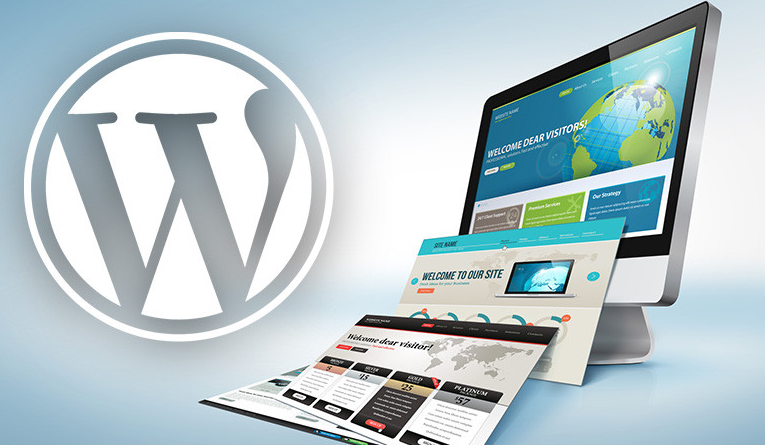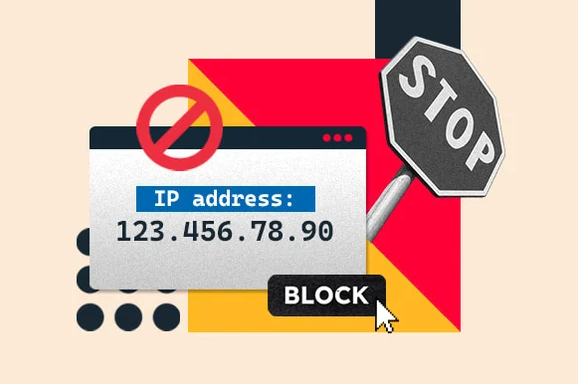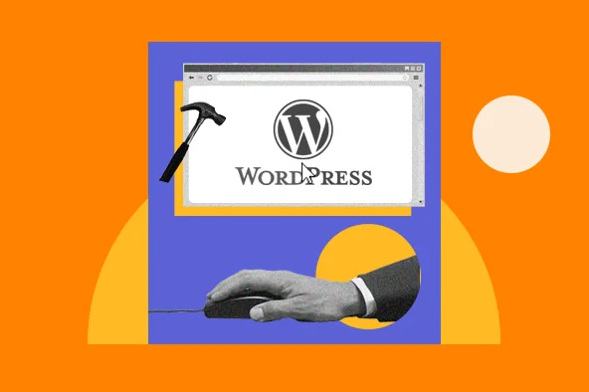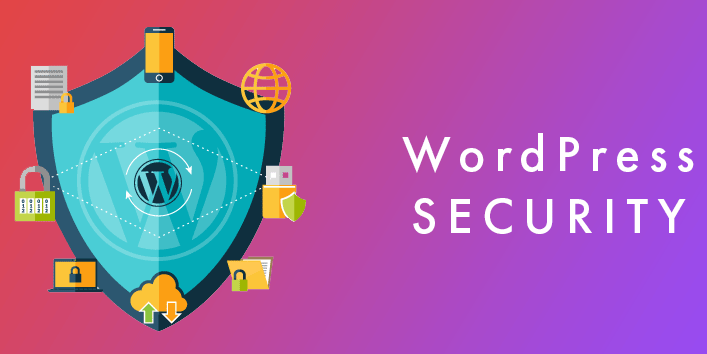WordPress is a Widely Utilized Content Management System
WordPress, a widely utilized content management system (CMS), holds the distinction of being the most prevalent platform in terms of usage, as it powers approximately 43.2% of all websites.
Regrettably, the widespread usage of the platform leads to the attraction of many hackers who take advantage of the security weaknesses present inside the system.
This does not imply that WordPress possesses an inadequate security mechanism. Rather, security breaches might potentially arise as a result of users’ insufficient awareness of security measures.
Hence, it is advisable to implement proactive security measures in order to mitigate the risk of your website’s design being targeted by hackers. In this discourse, we shall deliberate about a comprehensive array of 22 methodologies aimed at enhancing the security of WordPress and fortifying your website against a diverse range of cyber threats.
The essay will encompass optimal methodologies and recommendations, regardless of the presence or absence of WordPress plugins. Certain strategies can be applied to platforms other than WordPress as well.
The concept of backdoors refers to covert or unauthorized access points in computer systems or software applications These threats are commonly referred to as backdoor threats, as they exploit concealed entry points or vulnerabilities inside the website.

The intruders are able to circumvent the security barriers and get unauthorized access to the site by employing various deceptive methods, such as exploiting vulnerabilities in wp-Admin, FTP, SFTP, and other mechanisms.
Given the level of accessibility, malevolent actors possess the capability to insert scripts into the website, thereby exploiting the data and payment gateways.
In order to mitigate this issue, it is advisable to utilize tools such as SiteCheck to detect and eliminate any backdoor threats. Implementing two-factor authentication for login processes, implementing access restrictions for PHP files, and securing the admin dashboard are further measures that can be employed to prevent the infiltration of backdoors.
In this type of cyber assault, hackers targeting pharmaceutical companies employ the strategy of embedding unauthorized code within outdated versions of WordPress, which have not been sufficiently updated to effectively counteract such security concerns.
These spam messages have the potential to generate pharmaceutical advertisements within the website, so affecting search engine functionality.
These scripts may also possess malicious intent and hence, necessitate eradication. The optimal approach entails requesting the hosting provider to perform updates on various components such as WordPress, themes, plugins, and other relevant elements.
Implementing regular upgrades and backups represents an additional strategy for mitigating the impact of pharmaceutical hacking.
Deployment of Automated Scripts
The phenomenon of brute force login attempts refers to the act of systematically and persistently attempting to gain unauthorized access to a computer system or online account by exhaustively trying all possible combinations of usernames and passwords.
These risks involve the deployment of automated scripts that exploit vulnerabilities in weak passwords, hence enabling unauthorized login access to your website.
Implementing IP blocking and promoting the adoption of robust, lengthy passwords are among the measures that might be undertaken. The phenomenon of malicious redirects refers to the deliberate act of redirecting web users to unauthorized or harmful websites without their consent or knowledge.
One of the methods by which a website might be compromised is through the injection of malicious code during the installation process of WordPress, which can occur via FTP, SFTP, or the wp-admin interface.
The prevalent risks that specifically aim at end users using browser-side scripts. These code snippets are inserted in order to retrieve cookie or session data.

Denial-of-Service (DoS) attacks encompass scripts that leverage vulnerabilities within a website’s operating system memory.
This phenomenon occurs on websites that are running outdated versions. The compromise of a WordPress website has the potential to inflict significant harm upon a business’s financial earnings and standing within the industry.
Cybercriminals has the ability to illicitly acquire user data, passwords, and implant harmful software, hence potentially disseminating malware to those utilizing your system.
In the most unfavourable scenario, one can be compelled to make a monetary payment to cybercriminals as a means of restoring access to their website, commonly referred to as ransomware.
The significance of WordPress security According to a report released by Google in March 2016, a significant number of website users, over 50 million, were notified of potential risks associated with the websites they were accessing, including the presence of malware or the potential for data theft.
In addition, it is noteworthy that Google implements a practice of blacklisting approximately 20,000 websites on a weekly basis due to the presence of malware, while an additional 50,000 websites are blacklisted for engaging in phishing activities.
WordPress Security Measures
If an individual’s website functions as a corporate entity, it becomes imperative to prioritize the enhancement of WordPress security measures.
Just as it is incumbent upon business owners to safeguard their actual shop premises, online business owners bear the burden of protecting their business websites.
The prevalent instances of hacking efforts on WordPress websites involve the utilization of pilfered passwords. One can enhance the level of difficulty by employing robust and distinctive passwords specifically tailored for the website in question.
A significant number of individuals who are new to a particular system or platform express a reluctance to utilize robust passwords due to the inherent difficulty in memorizing them.
One advantageous aspect is the elimination of the need to recall passwords. Please refer to our comprehensive tutorial on the management of WordPress passwords. An other strategy for mitigating risk involves refraining from granting access to one’s WordPress administrative account until it is deemed absolutely necessary.
It is vital to possess a comprehensive understanding of user responsibilities and capabilities in WordPress prior to incorporating new user accounts and authors into your WordPress site, particularly if you manage a sizable team or frequently host guest authors.

The vulnerability of one’s online security is primarily attributed to the strength of their password. The password serves as the primary access credential for various online platforms, including websites, email accounts, social networking platforms, and other internet-based services utilized by individuals.
If an individual’s password is easily predictable, their online identity becomes susceptible to compromise. The compromise of a single individual’s ability to correctly guess your password can result in the complete deletion of all of your prior posts.
Potential security breaches include unauthorized access to your emails or the hijacking of your email address, which could result in the impersonation of your identity.
There exists the potential for the destruction of the efforts invested in constructing what you have diligently developed. Choosing a Robust Password. It is imperative that each password employed be both memorable and resistant to unauthorized access.
Utilizing a combination of random numbers and characters in the creation of a password enhances its resistance to unauthorized access. However, it is important to note that personal information such as one’s birthdate or the name of their first pet should not be used as passwords due to their vulnerability to being easily guessed or discovered.
WordPress.com
WordPress.com offers the flexibility to utilize lengthy passwords comprising a combination of alphanumeric characters and unique symbols, so granting users the autonomy to determine the level of protection for their passwords and subsequently their websites.
Having acquired the relevant information, it is now appropriate to adopt a retrospective approach.
Prior to selecting the option to deactivate your WordPress account, it is important to acknowledge that these numerical values are not inherently attributable to WordPress as the sole cause.
Alternatively, it might be argued that the WordPress product itself is not to blame. Hence, there exist certain measures that conscientious users can undertake to enhance the security of WordPress. WordPress maintains a substantial security team including esteemed researchers and engineers who diligently identify vulnerabilities within its system.
Consequently, they promptly address any identified concerns, preempting potential exploitation by malicious hackers. The security team consistently implements security upgrades for their applications. Regarding the WordPress core, we have sufficient coverage. The susceptibility of WordPress sites to potential issues can be attributed to the manner in which WordPress is made accessible to users.

This implies that the source code is accessible to all individuals for the purposes of distribution and modification. There are several advantages linked with the utilization of open-source software, including its universal accessibility, the extensive customization options it offers, and the ability to optimize its performance.
Consequently, a multitude of developers have generated themes and plugins that substantially enhance the functionality of this particular platform.
The attribute of flexibility is a distinctive characteristic of WordPress, contributing significantly to its extensive utilization and formidable capabilities. Naturally, the liberty afforded by WordPress is accompanied with associated expenses. If an individual possesses a WordPress site that is configured incorrectly or lacks sufficient maintenance, they are susceptible to a multitude of security vulnerabilities.
WordPress provides a substantial level of authority to its users, and this authority necessitates a corresponding level of accountability. Regrettably, a significant number of users are neglecting to assume this obligation, a fact that hackers are well aware of. Scour websites are targeted in a manner that is aligned with their specific characteristics.
WordPress White Screen of Death
One can find solace in the understanding that achieving flawless security is an unattainable goal, particularly in the realm of internet security. According to WordPress, Security can be understood as the process of minimizing risks rather than completely eliminating them.
The objective is to utilize all suitable measures at one’s disposal, within reasonable limits, in order to enhance one’s overall posture and minimize the likelihood of being a target and falling victim to hacking incidents.
Achieving absolute immunity to online threats is an unattainable goal; nonetheless, it is possible to significantly reduce the likelihood of their occurrence by implementing several precautionary measures.
The act of engaging with this text implies a concern for security and a willingness to undertake additional measures in order to ensure the safety of oneself and others who may access the information. An additional straightforward measure in ensuring WordPress security is the regular updating of the WordPress core, plugins, and themes. Failing to update software might result in adverse outcomes for your website, such as security breaches, the occurrence of the WordPress white screen of death, or the manifestation of many frequent issues.
There are two options available to users: actively staying informed about updates or opting for automated updates. The optimal choice is contingent upon various elements, such as temporal availability, level of proficiency, and the specific software utilized in your WordPress installation.
Irrespective of one’s approach to managing updates, whether by manual handling or automatic updates, it is imperative to consistently create a backup prior to executing any updates. User Accounts and Permissions: The Role of Access Control in Website Security.

Imagine a nightclub bouncer who selectively permits entry solely to authorized patrons, is that accurate? In a similar vein, it is imperative to maintain a stringent and diligent approach when it comes to the management of user accounts and permissions on your WordPress site.
One would not desire uninvited individuals to wreak havoc within their digital “club.” Implementing measures such as restricting the quantity of administrator accounts, carefully allocating responsibilities and permissions, employing strong and distinct passwords for each account.
And implementing two-factor authentication can substantially enhance the security of your website. Regular audits of user accounts and the subsequent removal of inactive ones are of equal significance, since they can be likened to the process of updating one’s guest list.
Defending Against Brute Force Attacks: Ensuring the Security of Your Website’s Data Repository One has observed instances in cinematic productions whereby a criminal endeavours to gain unauthorized access to a secure storage unit by employing a trial-and-error method to ascertain the correct combination.
This bears resemblance to a brute force attack against a website, wherein malicious actors make repeated attempts to ascertain passwords through trial and error. These include restricting the number of login tries, using CAPTCHA authentication, and employing plugins such as “WPS Hide Login” to conceal the login page.
MySQL Database for its Functionality
According to the Wordfence 2020 WordPress Threat Report, brute force attacks emerge as the prevailing form of attack on WordPress sites, hence rendering defences against such attacks essential.
A WordPress website utilizes a MySQL database for its functionality. An SQL injection refers to the unauthorized access by a malicious actor to the WordPress database, hence compromising the integrity and confidentiality of all associated WordPress data.
An SQL injection vulnerability enables unauthorized individuals to exploit the system by creating a new administrative user account, thereby granting them unauthorized access to the entirety of the website.
In addition to other techniques, hackers employ SQL injections to surreptitiously insert malevolent code into websites, thereby incorporating hyperlinks to spam websites.
PHP is the programming language responsible for executing the code of a WordPress website, and the presence of vulnerabilities within this language might potentially be exploited by malicious individuals with the intent of unauthorized access or manipulation.

A File Inclusion Exploit refers to the utilization of susceptible code to retrieve and include remote files, hence granting unauthorized access to a website by malicious actors.
One of the primary concerns associated with this type of assault pertains to the potential unauthorized access by hackers to the configuration PHP file, which holds significant importance inside the WordPress installation. It is advisable to periodically modify the URL of your login page.
Frequently altering the login URL can be perceived as a minor security precaution, although it can effectively discourage hackers from easily gaining unauthorized entry to your website. By often altering the login URL, the level of difficulty for hackers to employ guessing or brute force techniques to gain unauthorized access to your website is increased.
There exist manual methods for altering the URL, however, it is commonly advised by hosting companies to employ plugins for the purpose of URL management. If a WordPress website has been compromised, it is probable that malicious software, known as malware, has been inserted into the website’s files.
Therefore, it is advisable to regularly monitor files that have undergone recent modifications.
Conclusion
The prevalent forms of malware assaults targeting WordPress websites encompass backdoors, pharma hacks, and harmful redirects. Inquiring about the measures one might implement to enhance the security of a WordPress website in light of potential security concerns.
Given its widespread usage as a content management system on a global scale, WordPress has emerged as a prominent focal point for hackers who aim to exploit its vulnerabilities in order to gain unauthorized access to sensitive information, introduce malware into websites, and engage in various other forms of illegal activity.
There are several compelling justifications for the criticality of website security in the context of WordPress sites. Cybersecurity Measures: Websites are subjected to persistent threats from individuals with malevolent intent, aiming to unlawfully acquire confidential information, introduce harmful code, or vandalize online platforms.
WordPress websites are susceptible to these assaults, underscoring the importance of incorporating security measures such as firewalls, antivirus software, and routine security audits to minimize the vulnerabilities associated with cyber attacks.

The concept of reputation management refers to the practice of strategically managing and controlling the perception and image of an individual, organization, or entity A security breach has the potential to negatively impact an organization’s reputation and erode the trust it has established with its client base.
In the event of a website breach, there is a possibility that sensitive consumer data, encompassing personal details like names, addresses, and credit card information, may be disclosed, hence resulting in a decline in confidence and possibly legal ramifications. The rankings of search engines are influenced by the level of security exhibited by websites, so establishing website security as a crucial element in the optimization of search engine results.
Insufficient security measures on a website can have adverse effects on its search engine rankings, so compromising the online visibility and reputation of the associated business.
The implementation of rigorous security measures is of utmost importance in order to ensure the protection of your WordPress site and the safeguarding of your business and customers’ data.
It is imperative to incorporate certain steps into your security approach, including but not limited to regular backups, software upgrades, SSL certificates, and robust passwords. One may also collaborate with a reputable security company to do periodic security audits and adopt supplementary security measures in order to minimize the vulnerabilities associated with cyber attacks.
In summary, the implementation of robust website security measures is vital for WordPress sites in order to safeguard against cyber threats, uphold a positive reputation, adhere to regulatory requirements, and enhance search engine visibility.
